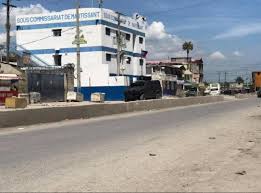
Summary.
The gang takeover of Martissant on June 1, 2021 marked the beginning of their territorial « conquests, » which were officially acknowledged on March 20, 2023 under the label of “lost territories.” This also signaled the consolidation of gang control in the West department and beyond.
Twenty-eight (28) “lost territories” have been identified, including 25 in the West department alone; (ii) 102 public institutions and 622 Private institutions have been forced to relocate—many were vandalized or set on fire; (iii) 1,064,935 internally displaced persons (IDPs) have been recorded; (iv) 4,716 people have been killed, including 136 police officers (killed or missing) ; (v) 3,363 people have been kidnapped. This alarming situation is the direct result of neglect and the complicity of many past authorities and influential individuals who have enabled the rise of organized crime in Haiti.
The U.S. government’s designation of Haitian gangs as international terrorist organizations on May 3, 2025 could help address the crisis—but only if it is followed by concrete, sustained, and coordinated actions, both short-term and long-term. Otherwise, Haiti risks descending into a state where terrorists control large parts of the country, including key government institutions. (CARDH: “Designation of Viv Ansanm and Gran Grif as Foreign Terrorist Organizations…”, §§91–95, May 19, 2025, https://cardh.org)
Given the urgent need to contain gangs in Haiti and the time and logistical constraints of the new regional approach envisioned by the Trump administration (via the OAS), the use of private military firm Academi (formerly Blackwater)—as reported by The New York Times on May 28—could be helpful if strictly regulated. This would require: (i) Operating under a framework that supports state security institutions; (ii) Adhering to human rights-based rules of engagement; (iii) Establishing oversight and accountability mechanisms ; (iv) Guaranteeing judicial oversight and recourse. It’s worth noting that Academi (formerly Blackwater) was expelled from Iraq following a massacre in Baghdad on September 16, 2007, where at least 14 civilians were killed and 23 injured. This led to the expulsion of 250 employees and the cancellation of their U.S. diplomatic security contract. In response to the scandal, the company changed its name from Xe (2009) to Academi (2011). Nicholas Slatten was sentenced to life in prison, and three other mercenaries received 30-year sentences. At the same time, broader reforms must be implemented to strengthen security institutions and address the root causes of crime. Authorities should focus on : (i) Passing emergency security legislation to amend the current law establishing the Haitian National Police (dated November 29, 1994, published in Le Moniteur #103) ; (ii) Creating a well-trained and well-equipped anti-terrorism/anti-gang unit ; (iii) Increasing the size of both the national police and armed forces ; (iv) Lifting the arms embargo imposed after the 1991 coup ; (v) Providing air, sea, and ground support to security forces and the Multinational Mission for Security Assistance (MMAS) to carry out large-scale operations ; (vi) Building a high-security prison ; (vii) Rapidly establishing a reintegration program for children and other vulnerable groups exploited by gangs ; (viii) Launching a disarmament initiative for gangs willing to surrender their weapons ; (ix) Creating a dedicated task force within courts and tribunals to handle criminal cases exclusively. (Ibid., §§120–125)


